Both behavioural and computational thinking are needed to effectively shape the future of urban mobility, says Zhao
Above: Professor Jinhua Zhao delivers Distinguished Lecture at Sidney Smith Hall, University of Toronto, March 27, 2023. (Photo: Pat Doherty).
Mobility Network was proud to co-host a visit by Professor Jinhua Zhao, the Edward and Joyce Linde Associate Professor of City and Transportation Planning at the Massachusetts Institute of Technology (MIT), on March 27 and 28, 2023. Prof. Zhao is well-known for his work at the MIT Mobility Initiative and as the host for the popular virtual weekly seminar series, MIT Mobility Forum.
Zhao came to Toronto to deliver the Distinguished Lecture for the Department of Civil and Mineral Engineering, "Behavior and computation: What defines the future of urban mobility?" the evening of March 27.
Though his visit was short, Zhao was generous with his time. In addition to delivering his public lecture and taking part in the subsequent panel discussion, Zhao met with several U of T faculty, made a guest appearance at Professor Eric Miller's graduate course "Cities as Complex Systems," and met with transportation engineering graduate students at a research roundtable.
The Distinguished Lecture event drew a large crowd.
In his welcoming remarks, Professor Brent Sleep, Chair of the Department of Civil and Mineral Engineering, said, "It's always great to see such a tremendous turnout for these Distinguished Lectures that are transportation-related. Every year I think transportation wins the prize for the widest and greatest and most number of people coming out from not just within the university, but from outside the university as well."
Professor Zhao captured audience attention from the start of his lecture.
I want to introduce a way of looking at transportation that I find rewarding.
Over time, throughout human history, we invented a fantastic set of technologies that help us move from point A to point B. Many from MIT and University of Toronto contributed to some of this design and implementation of the system.
But the question is, is the technology innovation necessarily translating into the betterment of the transportation and mobility system? That's the question I would ask.
Professor Jinhua Zhao, March 27, 2023
He explained his views in detail, drawing from research studies and sharing compelling arguments illustrated with relevant examples that always drove his points home.
Behaviour thinking is really good at identifying opportunities, while computational thinking is the one that offers the foundation, the solution to it. My research really tries to bring the two together. And you bring them together to shape individual behaviour, design systems, and reform policies.
Professor Jinhua Zhao, March 27, 2023
Following his lecture, Zhao joined Ryan Lanyon (TTC) and Professor Amer Shalaby (U of T) for a panel discussion moderated by Professor Marianne Hatzopoulou (U of T).
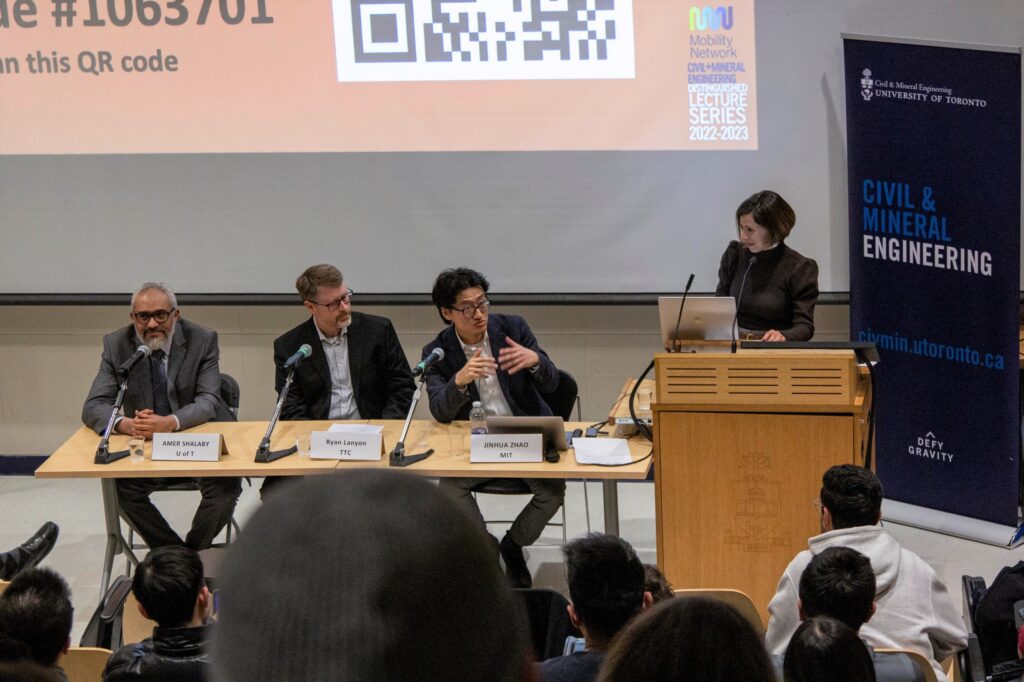
Prof. Hatzopoulou asked the panelists questions received from the audience and also blended in her own questions. Panel discussion topics ranged from a theoretical standard for basic access to mobility as a human right to the social nature of transportation.
Watch the video recording of "Behaviour and computation: What defines the future of urban mobility?"
Abstract
The transportation world is booming but in flux: the industry is being reshuffled, communities and cities are often confused and anxious about their mobility future, and the ecosystem pressure is daunting.
Mobility is in the midst of profound transformation with an unprecedented combination of new technologies: autonomy, electrification, connectivity, and AI, meeting new evolving priorities: decarbonization, public health, and social justice.
In this talk, Professor Zhao sharply focuses on two forces that drive the mobility future: behaviour and computation.
Behaviorally he investigates: Is travel social? Is travel emotional? And is travel perceptual? He uses a behavioural lens to examine mobility technologies and translates business decisions into a set of behavioural inquiries. Every single organization or company exists to change someone’s behaviour.
Computationally, he brings AI and machine learning methods to sense, predict, nudge and regulate travel behaviour. He demonstrates the power of bringing behavioural and computational thinking together, in order to make mobility services predictive, individualized, and experimental. He will illustrate how to design multimodal mobility systems that integrate shared and autonomous services with public transit.
Panel discussion to follow
Following his talk, Professor Zhao will be joined by Ryan Lanyon, Manager of New Technology and Innovation at the TTC, and Professor Amer Shalaby, Director of the Transit Analytics Lab, for a panel discussion moderated by Professor Marianne Hatzopoulou, Director of Positive Zero Transport Futures.
About Professor Jinhua Zhao
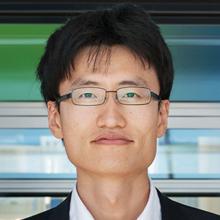
Jinhua Zhao is the Edward and Joyce Linde Associate Professor of City and Transportation Planning at the Massachusetts Institute of Technology (MIT). He integrates behavioral and computational thinking to decarbonize the global mobility system.
Prof. Zhao founded and directs the MIT Mobility Initiative, coalescing the Institute’s efforts on transportation research, education, entrepreneurship, and civic engagement. He hosts the MIT Mobility Forum, curating cutting-edge transportation research across the globe. Prof. Zhao directs the JTL Urban Mobility Lab and Transit Lab at MIT. He leads long-term collaborations with transportation authorities and operators worldwide, including London, Chicago, Washington DC, and Hong Kong and enables cross-culture learning between cities in North America, Asia and Europe. He develops methods to sense, predict, nudge, and regulate travel behavior, and designs multimodal mobility systems that integrate autonomous vehicles, shared mobility, and public transport. He is the co-founder and chief scientist for TRAM Global, a mobility decarbonization venture.
About the panel
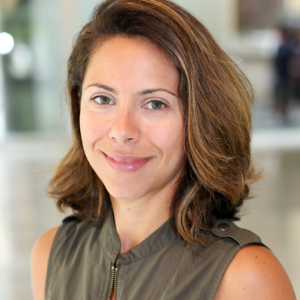
Marianne Hatzopoulou, moderator
Marianne Hatzopoulou is Professor in the Department of Civil and Mineral Engineering at the University of Toronto and Tier 1 Canada Research Chair in Transport Decarbonization and Air Quality. She leads the Transportation and Air Quality (TRAQ) research group studying the interactions between transportation, air quality, climate change, and public health; she published 150 publications on these topics. Prof. Hatzopoulou is also the Director of Positive Zero Transport Futures, a living lab ecosystem for testing transport decarbonization innovations with positive societal outcomes. Prof. Hatzopoulou is on the Canadian team of researchers who were the 2021 recipients of the NSERC Brockhouse Canada Prize for Interdisciplinary Research in Science and Engineering. In 2022, she received the University of Toronto Engineering Alumni Network 2T5 Mid-Career Achievement Award. She is an associate editor of the journal Transportation Research Part D: Transport and Environment and the incoming chair for the Transportation Research Board Standing Committee on “Air Quality and Greenhouse Gas Mitigation” (2023-2026).

Ryan Lanyon
Ryan Lanyon is the Manager of New Technology and Innovation at the TTC, having recently joined after a decade with the City of Toronto. Ryan has been working in local government for more than 20 years, starting out in demand management and providing online ridematching services to commuters. More recently, Ryan led the West Rouge Automated Shuttle Trial, developed the Transportation Innovation Zone at Exhibition Place, and recommended policies to City Council regarding micromobility. Ryan is also learning and researching methods of applying strategic foresight to prepare Toronto's transportation system for emerging and future transportation technologies.
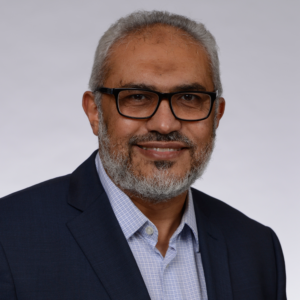
Amer Shalaby
Dr. Shalaby is Professor and Bahen/Tanenbaum Chair in Civil Engineering at the University of Toronto. He is the founding Director of the Transit Analytics Lab (TAL) and Co-Director of the Centre for Automated and Transformative Transportation Systems (CATTS). Dr. Shalaby is specialized in transit planning and scheduling, intelligent transit systems, transit operational management, transit system resilience, automated and connected transit technologies, and simulation and modelling of transportation systems. He has served on various technical committees and journal editorial boards. He also served on advisory panels of multiple transportation projects in Canada and internationally.
This free event was presented by the Department of Civil & Mineral Engineering Distinguished Lecture Series and co-sponsored by Mobility Network.
Above: Professor Baher Abdulhai (top row centre) at the Gateway to Growth Summit's breakout session "Tackling Congestion: Smart Infrastructure in the Zone," March 6, 2023. (Photo supplied by Toronto Region Board of Trade).
Professor Baher Abdulhai took part in the Toronto Region Board of Trade's Gateway to Growth Summit on March 6, 2023. He presented "Tackling Congestion with Intelligence" at the panel session entitled "Tackling Congestion: Smart Infrastructure in the Zone."
The session considered the question "What best-in-class smart infrastructure investments can help solve the crippling transportation gridlock resulting in huge costs and delays in getting products to market, choking the region’s growth potential?"
Abdulhai was joined on the panel by panelist Juan Pablo Bastida, Vice President, Public Sector, Geotab, and moderator Phinjo Gombu, Director, Economic Blueprint Institute, Toronto Region Board of Trade.
He gave a brief overview before discussing the universal cause of congestion: the demand for road capacity exceeding supply. He noted that Toronto is currently the seventh worst city in the world for congestion.
He discussed the typical solutions to congestion—reducing road capacity demand or increasing supply—before highlighting the use of intelligence to reduce congestion.
Abdulhai concluded with several promising smart applications that have the potential to reduce delays and total time spent in traffic by 20-50%:
- Adaptive Traffic Control using RL (deep reinforcement learning)
- Traffic Signals for Streets
- Ramp Metering and Dynamic Speed Control for Freeways with RL
- AV Headway Control with RL
- Dynamic Congestion Pricing: using Genetic Algorithms
- AVs for First and Last Mile
About the Gateway to Growth Summit
The Gateway to Growth Summit was a full-day event featuring expert presentations and discussion, presented by the Toronto Region Board of Trade and sponsored by Scotiabank and University of Toronto.
The area surrounding Pearson International Airport - the Pearson Economic Zone - is the second largest employment zone in Canada and the Gateway to Growth for our region. Home to a significant concentration of firms in advanced manufacturing, life sciences, logistics and warehousing, ‘The Zone’ sits at the heart of a network of highways, rail lines, and international goods movement, making its success vital to our economy and global competitiveness.
However, the Zone’s true potential remains untapped, restricted by transit availability for workers, road congestion, scarcity of employment lands, underinvestment in advanced manufacturing, and a lack of coordinated planning.
Toronto Region Board of Trade Gateway to Growth Summit
Parking supply and demand are often imbalanced in urban areas, causing adverse consequences such as excessive search times and long walking distances. Many parking authorities manage parking demand using pricing strategies such as fixed daily fees, hourly pricing, time-of-day pricing, progressive pricing, or dynamic pricing.
This presentation discusses the challenges and solutions related to parking pricing, including data availability, occupancy detection, and price-setting.
About the speaker
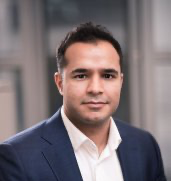
Dr. Mehdi Nourinejad is an Assistant Professor in the Civil Engineering Department of York University. His research expertise is in managing transportation systems, including parking systems, automated and electric vehicle technologies, micro-mobility services, intelligent transportation systems, and traffic flow theory.
Presented by University of Toronto ITE Student Chapter, UT-ITE. Free. All are welcome.
If any specific accommodations are needed, please contact ite@studentorg.utoronto.ca. Requests should be made as early as possible.
Positive Zero Transport Futures and Mobility Network will host the Emerging Mobility Scholars Conference June 22-23, 2023 at the University of Toronto.
We invite graduate students and postdoctoral fellows across Canadian institutions to join us in person at the University of Toronto to exchange ideas and showcase your research relative to mobility and climate change.
The conference theme is:
Cause or Solution? Urban mobility in an era of climate emergency
Due to socioeconomic shifts and the need to achieve deep cuts in greenhouse gas (GHG) emissions, Canada will experience an unprecedented transformation in urban infrastructures, policy responses, and new technologies.
Nowhere is this truer than in the transportation sector, which is one of Canada’s largest GHG emitters and has historically been relatively impervious to change due to its extreme dependency on fossil fuels.
This transformation in our mobility systems needs not only to mitigate climate change but also enable community benefits in an equitable manner. It is crucial that efforts to decarbonize our urban areas be informed by the co-benefits of GHG reduction.
Conference topics
- Co-benefits of decarbonization
- Land use and transportation planning
- Technological response to climate change
- Equity and environmental justice
- Transportation and health
- Urban resilience planning
- Planning and politics of climate change
- Air pollution in a changing climate
- Climate extremes: Data and modelling
Call for Abstracts
- Abstracts to be 300 words or less.
- All abstracts must be submitted by March 10, 2023.
- Submit your abstract through the submission web portal or this QR code:
Visit our event post for more details.
Professors John Robinson and Kim Slater have been awarded a SSHRC Connection Grant to design and deliver three workshops in 2023, part of the Urban Climate Action Program (UCAP), to facilitate the exchange and mobilization of strategies to reduce GHG emissions in Toronto related to (1) mobility, (2) energy, and (3) waste.
In partnership with the City of Toronto, three interdisciplinary U of T networks (Climate Positive Energy, the Mobility Network and SDGs@U of T, the Net Zero Workshop Series) will convene and engage an array of Toronto-based industry and community organization representatives, and through transdisciplinary knowledge exchange, identify the real-world barriers they face in meeting the TransformTO Net Zero Strategy goals, and ultimately, lead to the co-production of multi-sectoral and multi-stakeholder solutions.
These workshops will be shaped by and inform research agendas within UCAP and the U of T networks; they will also facilitate the flow and exchange of practitioner and research knowledges with key audiences within the University of Toronto, the City of Toronto, and local communities of private sector and civil society actors.
An exploration of infrastructure and time led by Professor Shoshanna Saxe, Canada Research Chair in Sustainable Infrastructure
Making priorities about infrastructure investment is increasingly a focus of politics and government debates. However, too often the discussion and imagining of infrastructures futures is divorced from practical considerations of time. We cannot wish large projects or new systems into existence; it takes years to decades to plan and physically construct heavy infrastructure. Further, once operating, civil infrastructure is near permanent making it critical to not build the “wrong" projects. However, we can also not accept doing nothing, or delaying too long, given pressing social and environmental need. In addition, long term projects still need to be started and stewarded over the shorter term.
The dual needs to prioritize effective rapid approaches to infrastructure in the near term without investing in dead ends, while simultaneously establishing robust planning and decisions processes for large infrastructure investments that take decades, makes the exploration of time and infrastructure complex and pressing.
This workshop is invitation-only.
Workshop goal
The goal of this workshop is to discuss a short term infrastructure horizon. What can and should we do on the 1 to 5 year time scale?
This work contributes to three ongoing discussions within the infrastructure sector:
- The increasing infrastructure deficit,
- The need to rapidly adapt infrastructure systems for climate change, and
- Barriers to infrastructure development (limited budgets, conflicting stakeholder perspectives, institutional intransience).
Agenda
9:45 a.m. - Doors open. Coffee, tea, and water available.
10 a.m. - Workshop commences.
12 noon - Lunch.
Sponsors
This workshop is funded by the Royal Academy of Engineering Distinguished International Associates Round 2 and the University of Toronto Mobility Network.
We welcome Dr. Nael Alsaleh as Mobility Network Postdoctoral Fellow for the City of Toronto Zero-Occupant Vehicle Project supervised by Professor Eric Miller.
Nael completed his BSc in Civil Engineering in 2015 and MSc in Transportation Engineering in 2017 at the Jordan University of Science and Technology (JUST). His MSc thesis won the first-place award in The Best Master’s Thesis Competition at JUST for the 2017-2018 academic year.
Nael went on to earn his PhD in Transportation Engineering in December 2022 from Toronto Metropolitan University under the supervision of Professor Bilal Farooq. His dissertation focused on exploring network designs, developing demand models, and evaluating the sustainability of on-demand public transit systems.
Nael's research interests include travel demand modelling, the operation and planning of CAVs, and on-demand shared mobility services.
He comments:
As part of my PhD studies at TMU, I spent the last three years in Toronto. It's a place I call home now, and I aspire to be part of its future prosperity and development.
When it comes to transportation and transportation planning, one cannot hope for more than being part of the Mobility Network that provides mobility solutions for our growing cities to flourish sustainably at the heart of the University of Toronto, a leading institute not only in Canada but worldwide.
I look forward to working with the lead researcher, Professor Eric Miller, on the "Zero-Occupant Vehicles" Project, which will inform the City of Toronto of the potential impacts of ZOVs and provide strategies to mitigate them.
Dr. Nael Alsaleh
We welcome Dr. Gaurav Mittal as a UTM Mobility Network Postdoctoral Fellow supervised by Professor Shauna Brail.
Gaurav comes from an interdisciplinary background. He completed his PhD in human geography at the National University of Singapore in 2021 with a prestigious President’s Graduate Fellowship. He also holds a master’s degree in urban policy and a bachelor’s degree in architecture.
He received the Prestige Prize for his PhD research from the World Conference on Transport Research Society in 2019.
Gaurav’s academic interests lie at the intersections of urban transport, policy mobilities, and governance. He brings these categories together to critically examine the role of the state in ordering urban societies.
He has more than six years of full-time research and professional experience and seven years of part-time teaching experience in India and Singapore.
Gaurav says that after working in the Global South context for quite some time, he is looking forward to working with University of Toronto researchers and “the opportunity to widen my horizons and learn more about how platform mobilities are functioning in the Global North context.”
My work engages with the study of biopolitics by explicitly investigating the governmentalities that shape material urban mobilities. It gets to the heart of ongoing urban planning and governance discussions and debates over social inequality and sustainable urban futures.
In some sense, we kind of think that the mobilities in North are different than South, but I think that there are many common things which can be explored between these “imaginary” boundaries – boundaries which have been created in the discourse of North and South.
I believe this opportunity will help me develop a comprehensive understanding of global urban transport governance and contribute to a more engaged North-South dialogue in mobilities research.
Dr. Gaurav Mittal
Workshop objectives
- Bring together Mobility Network faculty in the social science, climate science and engineering to strive toward a shared understanding of the intersections between transportation equity and climate change.
- Identify policy relevant research questions.
- Share information discussed at the workshop with communities via an accessible communications product.
Agenda
10:10 - 10:20 - Introductions
10:20 - 11:00 - Brief presentations by Professors Marianne Hatzopoulou, Steven Farber, and Shoshanna Saxe, and Dr. Ignacio Tiznado Aitken.
11:00 - 12:00 - Roundtable discussions will touch on four cross-cutting themes:
- Need for speed versus long-term transitions
- Policies at cross-purposes
- Scale and context
- Community alliances
12:00 - 1:00 - Lunch
1:00 - Workshop ends
Register
This workshop is restricted to University of Toronto faculty. If you are interested in attending, please email mobilitynetwork@utoronto.ca with the subject line "Equity & Climate Change Workshop" before January 18.
This event is presented in partnership
Mobility Network presents this workshop in partnership with Mobilizing Justice, Positive Zero Transport Futures and the UTSC Suburban Mobilities Research Cluster.
About the Finding Connections workshop series
Finding Connections workshops bring together researchers from across the University of Toronto addressing the seven overarching mobility research areas we call Knowledge Clusters:
- Urban Equality & Inclusion
- Climate Change & Health
- Mobility Technologies & Services
- Freight & Urban Goods Movement
- Land Use Planning & Economy
- Behavioural Analysis & Modelling
- Governance, Policy Analysis & Managing Change
(See our website home page for descriptions of Knowledge Clusters).
Additional workshops will be announced. All University of Toronto faculty are welcome to attend.
Questions?
For more information please email us at mobilitynetwork@utoronto.ca with the subject line "Finding Connections."
The November 7, 2022 event Livable Streets 2.0 in Toronto, co-presented by Mobility Network and Suburban Mobilities, featured presentations and discussions centered around Dr. Bruce Appleyard's recent book "Livable Streets 2.0" and Toronto’s situation vis-à-vis livable streets.

Mobility Network Director, Professor Eric Miller, welcomed everyone warmly and gave a quick outline of the program before introducing moderator Paul Hess, professor at U of T's department of geography & planning, who then introduced speakers in turn and later moderated discussions and Q & A.
Dr. Bruce Appleyard, an associate professor of city planning and urban design at San Diego State University, gave the keynote presentation, "The Conflict, Power, and Promise of Our Streets: Street Reimagination, Redesign, and Joy."
The book "Livable Streets 2.0" (2020) by Bruce and Donald Appleyard builds on Bruce's father Donald Appleyard's book "Livable Streets" (1981), updating the topic with the latest research, new case studies, and best human-centered practices for creating more livable streets for all.

Dr. Appleyard opened by sharing some personal photos and stories before turning the audience's attention to the increasing dangers of our streets.
We've got a serious problem right now. We've got rising traffic violence. In the U.S., 38,000 people die each year. So that's about 104 people each day. That's about equivalent to a jet plane crash every day. Yet we rarely hear about it.
Dr. Bruce Appleyard, Livable Streets 2.0 in Toronto, November 7, 2022
He explained why "roads and cars are damaging to your health," and discussed a number of his research projects and initiatives, sharing his many findings on ways to make streets safer for everyone.
We need to think about how the streets are for people and are the hearts of our cities.
Dr. Bruce Appleyard, Livable Streets 2.0 in Toronto, November 7, 2022
In his presentation, Appleyard discussed the conflict, power, and promise of our streets. In his closing slide, "The Promise of Our Streets," he elaborated on one of his favourite quotes from his father.
We should raise our sights for a moment ---
What could a street ---
- a street on which our children are brought up, adults live, and the elderly spend their last days;
- where all people can move naturally with dignity and freedom under their own power;
- and where we are all able to celebrate our humanity together?
What could such a street be like?
Donald Appleyard, with italicized additions from Dr. Bruce Appleyard
Nancy Smith Lea

Nancy Smith Lea, a senior advisor and former director of The Centre for Active Transportation (TCAT), added bit of Toronto context to the conversation, focusing on the role of advocacy, the divides of the city, how decisions are made, and TCAT's goals.
Tragedy due to traffic violence affects many people, like Bruce and his and his father, and that's often an impetus for advocacy.
Nancy Smith Lea, Livable Streets 2.0 in Toronto, November 7, 2022
One divide in Toronto is the safety of those in cars compared to those walking and cycling, said Smith Lea. "It's getting more unsafe for people who are walking and cycling," she stated.
Another divide is between the numbers of urban and suburban cyclists. "Cycling in Toronto's downtown is on the rise. But in the inner suburbs, cycling rates are lower today than they were in 1996," said Smith Lea.
Looking at Toronto's bike network, Smith Lea noted another divide, saying, "There are almost no bike lanes in the suburban areas, especially Scarborough where many racialized people live."
Smith Lea also talked about TCAT's work:
We work to advance knowledge and evidence to build support for safe and inclusive streets for cycling and walking. There are three main strategic areas that TCAT works on. The first is to support informed decision making. Second, to engage communities about the potential of complete streets and to address barriers to walking and cycling. And third, to facilitate knowledge exchange and break down some of the silos that exist between the different communities of practice.
Nancy Smith Lea, Livable Streets 2.0 in Toronto, November 7, 2022
Dr. André Sorensen

Dr. André Sorensen, a professor of human geography at University of Toronto Scarborough, opened by thanking both Bruce and Donald Appleyard for their contributions to "helping us see streets as places where people live."
They [Bruce and Donald Appleyard] inspire us to question street design that is driven primarily or even entirely by the goal of moving and parking automobiles. The idea that streets can and must be a lot more than that is now widely shared - in good part thanks to their research.
Dr. André Sorensen, Livable Streets 2.0 in Toronto, November 7, 2022
He also acknowledged "Bruce's contributions to the development of a grammar and a detailed vocabulary of street design ideas," which he said are now very important tools for city-builders.
Sorensen said that the transformation of suburban, automobile-dependent places into livable streets is critically important. "The key to making our suburbs more healthy, safe, sustainable, socially equitable, and economically dynamic," he said, "is to make them more walkable and bikeable, and less automobile-dependent."
He stressed the transformative power of livable streets.
I believe that it's incredibly important right now, in a time of political and economic uncertainty ... that we, and especially our students, are able to share concrete, common-sense, and solidly researched approaches to making the world a better, more livable and sustainable place starting with streets and active transportation in our own neighborhoods.
Dr. André Sorensen, Livable Streets 2.0 in Toronto, November 7, 2022
The panel

Smith Lea and Sorensen joined Appleyard in a panel discussion before taking audience questions.

Dr. Paul Hess moderated, and occasionally took part in, the panel's discussion of:
- understanding and envisioning what good safe streets can look like;
- the implementation of livable streets;
- the particular difficulties but also opportunities in Scarborough where such a large part of the population is dependent on auto travel;
- how streets can accommodate changing technologies, e.g, sidewalk delivery robots;
- the need to update laws regulating who can use the roads;
- how the argument that people need to drive cars in winter is used against planning and supporting active transportation, and how the argument can be rebutted.
Watch the event video recording
Resources
- Livable Streets 2.0, Bruce and Donald Appleyard, Elsevier, 2021. Purchase discount code: SOCSC30.
- Access chapters of the book through University of Toronto Libraries.
Speaker presentation slides (PDF)
- The Conflict, Power, and Promise of Our Streets: Street Reimagination, Redesign, and Joy - Dr. Bruce Appleyard
- Livable Streets 2.0 in Toronto - Nancy Smith Lea
- Towards Livable Streets in the GTA - Dr. André Sorensen
Articles, reports and publications
- Bruce Appleyard (2022), Livable streets for schoolchildren: a human-centred understanding of the cognitive benefits of Safe Routes to School, Journal of Urban Design, 27:6, 692-716. DOI: 10.1080/13574809.2022.2070145.
- Bruce Appleyard (2017), The meaning of livable streets to schoolchildren: An image mapping study of the effects of traffic on children's cognitive development of spatial knowledge, Journal of Transport & Health, Vol. 5, June, 27-41. DOI: 10.1016/j.jth.2016.08.002.
- Hess, Paul, Michael Piper and André Sorensen (2022), Can We Retrofit Suburban Arterials? Journal of the American Planning Association. DOI: 10.1080/01944363.2022.2033637.
- Hess, Paul Mitchell & André Sorensen (2015), Compact, concurrent, and contiguous: smart growth and 50 years of residential planning in the Toronto region, Urban Geography, 36:1, 127-151. DOI: 10.1080/02723638.2014.947859.
- Sorensen, André , et al. (2022), The Scarborough Greenway Network: Building an outstanding offroad trail network.
- Sorensen, André , et al. (2021), The Scarborough Opportunity: A Comprehensive Walking and Cycling Network.
- Sorensen, André and Paul Hess (2015), Choices for Scarborough: Transit, walking, and intensification in Toronto’s Inner Suburbs. Toronto, The Cities Lab, University of Toronto Scarborough.
- Sorensen, André and Paul Hess (2015), Building suburbs, Toronto-style: Land development regimes, institutions, critical junctures and path dependence. Town Planning Review. 86. 411-436.
Video
- Revisiting Donald Appleyard's Livable Streets, Streetfilms.
Websites
- The Centre for Active Transportation (TCAT)
- What Makes a Successful Place? Project for Public Spaces
- Suburban Mobilities Research Cluster UTSC
This report presents an ambitious vision for a connected Greenways network of off-road multi-use trails (greenways) in publicly owned corridors throughout Scarborough. Scarborough is fortunate in having major opportunities to build Greenways in existing public rights of way with no need for land purchase or expropriation. The Greenway network presented here sets out a vision for a connected network that reaches to every corner of Scarborough, with 93% of Scarborough residents living within 1km of the proposed network. Some off-road paths currently exist, but most are in parks, and are very narrow. Crucially, they don’t connect together to form a network and are therefore almost useless to get around Scarborough. The total network we propose is 133.3km in length, of which 51% already exists as paths and trails. This is a significant head start, but we argue that it should be a major City of Toronto priority to improve these paths and connect them together. A major Toronto policy priority is to facilitate the shift to a mobility culture in which active transportation plays a meaningful part. But the reasonable fear of dangerous roadways is an important obstacle to a greater share of active transportation for mobility in Scarborough.
A Greenway network can make a major contribution to building a walking and cycling culture for everyday mobility. This Greenway network will transform Scarborough from an active transportation desert to the place with one of the best urban off-road active transportation networks in the world. Plans for active transportation including Greenway network plans must be in place before large-scale intensification redevelopment of Scarborough accelerates. No further public land corridors should be privatized before a plan for a complete network of off-road multi-use trails is agreed and established as City policy.
Access the report
THE SCARBOROUGH GREENWAY NETWORK: Building an outstanding offroad trail network, by André Sorensen, Amaan Jabbar, Karen Khan, Allison Oki, and Anastasiia Ostrovskaia. October 2022.
About the UTSC Suburban Mobilities Research Cluster
This report is part of Project 7 - Scarborough Greenways Network (Principal Investigator: André Sorensen) of the Suburban Mobilities Research Cluster at UTSC. The project aims to develop an ambitious vision for a complete network of off-road multi-use trails in Scarborough.
Learn more about this and other projects of the UTSC Suburban Mobilities Research Cluster.
- Read "Scarborough could have one of the world’s best off-road trail systems," by Alexa Battler, University of Toronto Scarborough News, October 7, 2022.

